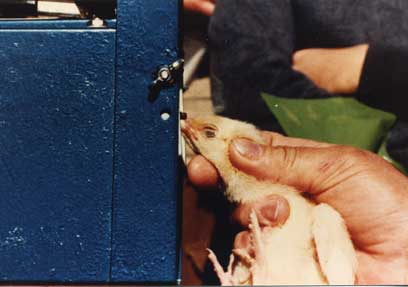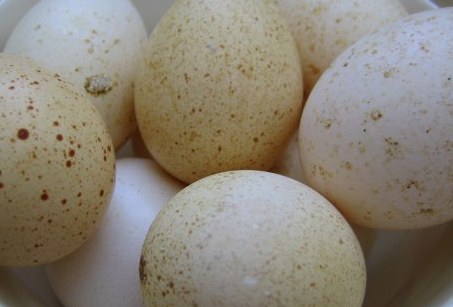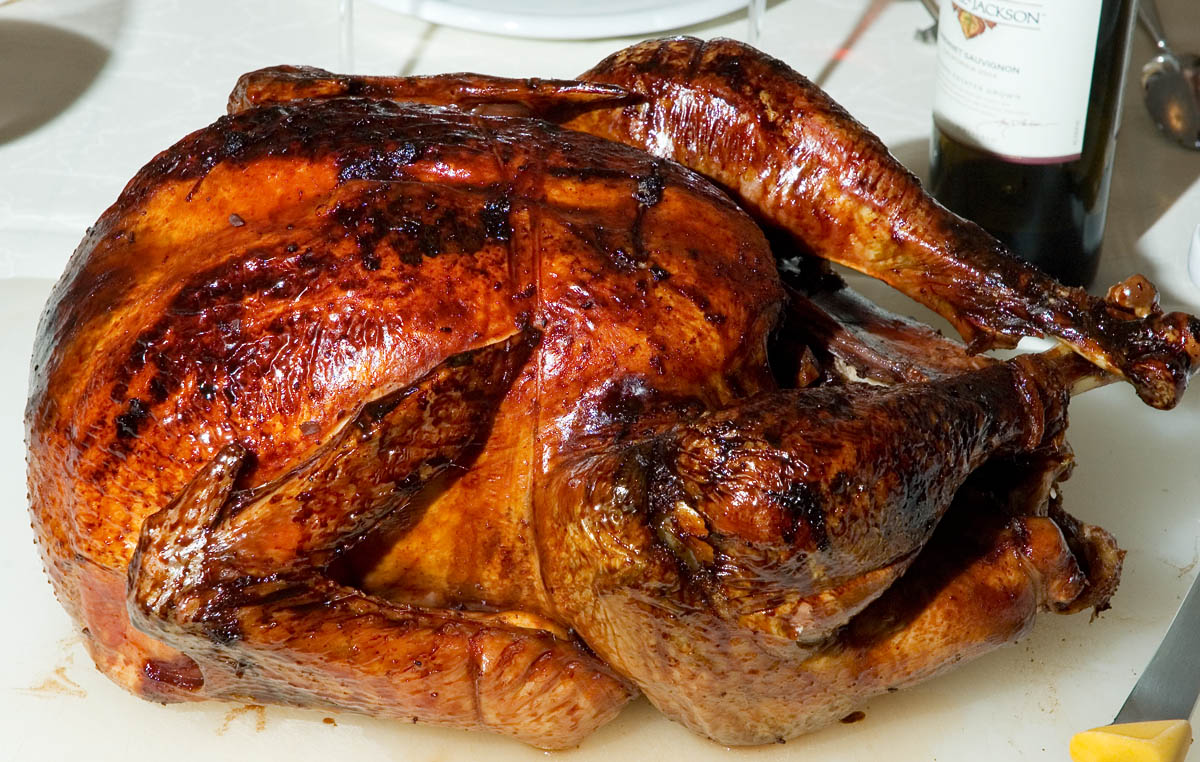Turkey Management
Debeaking
Poults should be debeaked to control feather picking and cannibalism. Debeaking can be done at day old or 3-5 weeks of age. Remove the beak at about one half the distance from nostril to the tip of the beak.

Desnooding
Removal of the snood or dewbill is to prevent the head injuries from picking and fighting. At the day old the snood can be removed by shumbnail or finger pressure. At 3 weeks of age it can be cut off close to the head with sharp scissors.
Detoeing or toe clipping:
Clipping is done at day old by removing the tip of the toe just to the inside of the outer most toe pad including the entire toenail.
Turkey egg
The turkey will start lay from the 30th week of age and its production period is 24 weeks from the point of lay. Under proper feeding and artificial lightening management turkey hens lay as much as 60-100 eggs annually. Nearly 70 percent of the eggs will be laid in the afternoon. The turkey eggs are tinted and weigh about 85 gm. Egg is noticeably pointed at one end with strong shell. The protein, lipid carbohydrate and mineral content of turkey egg are 13.1%, 11.8%, 1.7% and 0.8% respectively. The cholesterol is 15.67-23.97 mg/gm of yolk.
 . .
Turkey Eggs
Turkey meat
Turkey meat has nutritional and sensorial properties which make it almost ideal raw material for rational and curative nutrition. People prefer turkey meat because of its leanest nature. The protein, fat, energy value of turkey meat is 24%, 6.6%, 162 Calories per 100 gm of meat. Mineral like potassium, calcium, magnesium, iron, selenium, zinc and sodium are present. It is also rich in essential amino acids and vitamins like niacin, vitamin B6 and B12. It is rich in unsaturated fatty acids and essential fatty acids and low in cholesterol.

Turkey meat
(Source: Farm Digest, Canara Bank,(July-September,2008)
Catching and handling of turkeys:
Turkeys of all age group can be easily driven from one place to another with the help of a stick. For catching turkeys a darkened room is best, wherein they can be picked up with both legs without any injury. However, mature turkeys should not be kept hanging for more than 3-4 minutes. The temperament of turkeys is usually nervous; hence they get panicky at all stages. Hence entry of visitors in to the turkey's house should be restricted.
Feed: The methods of feeding are mash feeding and pellet feeding.
-
The energy, protein, vitamin and mineral requirements for turkeys are high when compared to chicken.
-
Since the energy and protein requirements for the both sexes vary they must be reared separately for better results.
-
Feed should be given in feeders and not on the ground.
-
Whenever change is made from one diet to another it should be carried out gradually.
-
Turkeys require a constant and clean water supply at all times.
-
Provide more number of water during summer
-
Feed turkeys during the cooler parts of the day during summer.
-
Provide shell grit at the rate of 30-40gm per day per bird to avoid the leg weakness.
Green feeding
In intensive system, greens can be fed up to 50% of the total diet on dry mash basis. Fresh Lucerne is first class green feed for turkeys of all ages. Apart from the Desmanthus and Stylo can be chopped and fed turkeys to reduce the feed cost.
Insemination in hens:
-
Artificial insemination is done when the flock attains 8-10% egg production.
-
Inseminate the hens every three weeks with 0.025-0.030 ml of undiluted semen.
-
After 12 weeks of the season it may be better to inseminate every fortnight.
-
Inseminate the hen after 5-6' 0 clock in the evening.
-
The average fertility should be 80-85% over a 16 week breeding season.
Marketing of turkeys
The meat of turkey has nutritional and sensorial properties which make it almost ideal raw material for rational and curative nutrition. The turkey can produce 30gm of digestible protein from 100gm feed. The dressing percentage of turkey is 80-87%, which is highest of all farm species.
Age in weeks |
Average Body
Weight (Kg) |
Total feed
consumption (Kg) |
Cumulative feed
efficiency |
Male |
Female |
Male |
Female |
Male |
Female |
Up to 4th week |
0.72 |
0.63 |
0.95 |
0.81 |
1.3 |
1.3 |
Up to 8th week |
2.36 |
1.90 |
3.99 |
3.49 |
1.8 |
1.7 |
Up to 12th week |
4.72 |
3.85 |
11.34 |
9.25 |
2.4 |
2.4 |
Up to 16th week |
7.26 |
5.53 |
19.86 |
15.69 |
2.8 |
2.7 |
Up to 20th week |
9.62 |
6.75 |
28.26 |
23.13 |
3.4 |
2.9 |
Breast blisters:
They are much more common in toms then in hens. They are believed to be caused by continuous irritation of the skin that covers the breastbone.
Cannibalism:
Feather picking is a mild form of cannibalism to which turkeys are addicted, especially during the growth period. It can be prevented almost completely by debeaking.
Prevention:
| 

 .
.